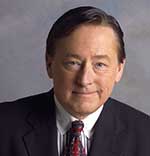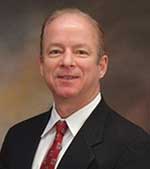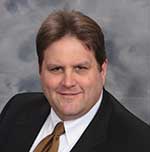Energy Distribution Partners plans growth through retail propane and midstream deals
A new energy company with a veteran propane industry leader is now on the scene, poised for growth through retail propane and midstream acquisitions and mergers.
Chicago-based Energy Distribution Partners (EDP) launched in 2012. Its CEO, Tom Knauff, has 30 years of propane industry experience, working as a wholesale division manager and retail marketing director for Ferrellgas and later cofounding Propane Continental and Liberty Propane. He was a cofounder and worked recently as managing principal of Jordan, Knauff & Co., an investment banking firm.
Knauff is now dedicated full time to EDP. He works alongside Marlo Young, executive vice president of retail propane, and Brett Krause, head of business development.
EDP has carried out three transactions totaling 11 million gallons: Linden’s Propane in LaGrange, Ohio; Ludwig Propane in Grand Rapids, Ohio; and Expo Propane in Los Angeles.
LP Gas Editor Brian Richesson caught up with Knauff about the new venture.
LP Gas: What is your vision for Energy Distribution Partners?
Knauff: I have a lot of years of experience in the industry, with two companies being the predecessor to this that I founded – Propane Continental and Liberty Propane. The fact of the matter is both companies were sold before their time, and we’ve financed Energy Distribution Partners privately so it can stay a company for the long term. We think the opportunity in the propane business for multiple locations with quality operators is greater than it’s ever been despite what we’ve read about lower per-capita volumes. We’re not crazy about the fact per-capita volumes have gone down, but per-capita Btu usage has gone down for every energy source. Appliances and delivery systems are more efficient, so per-capita usage goes down. We’re not alarmed by that. We think the opportunity for quality operators who understand the propane business and know how to operate it effectively, who understand propane operations and customers, and how to provide opportunities for employees – the opportunity is just as great as it’s ever been.
LP Gas: How would you describe your acquisitions strategy? What type of companies do you look for? What size?
Knauff: Anything that’s a viable, self-sustaining size in a quality area and quality operation is fair game for a discussion. A viable company that is a quality operation we would not rule out, no matter what the size.
For certain transactions, we have a financial strategy that involves the tax-deferred exchange of equity for assets. That’s not necessarily appropriate for everybody, but it’s there for certain people. With Liberty Propane, we acquired 26 companies, and 70 percent of sellers opted for that strategy. It’s pretty commonplace. We refer to it as a tax efficiency equity transaction.
LP Gas: Are you concentrating on a specific geographical region?
Knauff: We think we need to be on both sides of the Continental Divide, but other than that, no. Clearly we have a focus in the Ohio Valley and the Greater Appalachian Basin, a focus on California and the West. We want to be on both sides of the Rockies so our weather pattern is properly hedged, and be in both the residential and commercial/industrial side of the business.
LP Gas: How big would you like EDP to become?
Knauff: We are well financed for the long term and for size. Our plans involve ultimately getting into the midstream side of the business as well as retail propane. On a developmental basis, we are using our background and presence in retail propane, but we intend to be in NGL midstream, storage and transportation assets. By doing that, we can become a very large company. The midstream industry has a lot of medium-sized companies that are larger than the entire propane industry, but our plan is to be a major multi-state operator in retail propane.
LP Gas: After EDP acquires a company, what’s the process for day-to-day operations and getting the right people in place? Will that company’s name remain the same?
Knauff: The operating philosophy we believe in is one of local management and deep delegation, so when operating decisions regarding pricing and customer service are made closer to the customer, the employees are more responsible and dedicated to the employer, and more is expected out of them. The customer can sense it when a decision is made close to them. Because our branding strategy is multi-local, we don’t plan to have a bureaucratic central planning structure where customers can feel and sense that decisions are not being made locally and in a way that makes sense in their market. A customer of ours shouldn’t have an experience any different than if they were dealing with a quality, locally owned business. So local branding and the preservation of the historical legacy of the business are part of our operating strategy.
LP Gas: Selling a company is a stressful time for owners. What does EDP do to put minds at ease?
Knauff: I’ve personally been through the process over 60 times on the buying side of the table and a couple times on the seller’s side. I know from experience the way for a successful transaction to work as a problem solver from both sides of the desk, look at what the desired outcome is and tailor the transaction to fit the desired outcome, especially on the part of the owner of family businesses that have a long history. We have a good bedside manner on understanding the psychology and the cultural ups and downs on what the process is like and helping counterparties through it. We’ve been successful because we’re sensitive to the kinds of issues that are important when family businesses are facing a change of that type.
LP Gas: Is your company’s goal to provide these smaller company owners with an option to exit their businesses?
Knauff: That’s right, and because of the way we’re organized, if someone wants to exit the business and walk away, the structure offers that. If they want to participate in the growth of a larger company and the possible exposure to a larger market, we offer that as well. We think ultimately going public as an MLP is a possibility we’ll evaluate. The MLP structure is attractive to us. If we decide not to go public, we can be structured as a private MLP.
LP Gas: Is EDP similar to Propane Continental, which completed 36 acquisitions over five years?
Knauff: Yes, I think so. With Propane Continental, we were in midstream, you might say. That word was not bandied about as much back then. It’s similar in operating strategy and design. The people who have been around the industry for a long time would know we planned on having Propane Continental as an entity for a long time. Our financial partner made the decision to get out of direct company investments, and we ended up having to find a buyer for the company [which was Cornerstone Propane]. Energy Distribution Partners is financed privately for the long term because my goal is to operate for decades.
LP Gas: What is the source of funding for EDP to acquire these retail and midstream companies?
Knauff: We’re funded by private individuals and family offices with a long-term view to their investment objectives. That contrasts with the standard current-era private equity funding, which takes a short-term approach. The equity portion of our balance sheet is very strong, and we also have a relationship with a global bank. We really don’t have a limit on the size of transaction we can do. We’re capable of executing a transaction in the $100-million-plus range, but our orientation toward the smaller end of the transaction size, $10 to $20 million dollar transactions, is where the family businesses are. We have financial resources and relationships that we can marshal in order to do a transaction of any size that presents itself and makes sense for the company’s strategy. On the midstream side, those transactions can be very large.
LP Gas: How much has changed in the propane industry in general from your early days? How about with acquisitions?
Knauff: The industry has required more in the way of professional management,because product cost is higher; there are greater working capital needs; accounts receivables management is more of a factor; keeping the business properly funded is harder than ever; insurance is expensive; regulations are more intense; and it’s more and more become a business that you really have to work at to manage.
One of the interesting things I find about the acquisitions side of the industry – when I first got into the industry, there were some 4,000 companies, and the top 10 comprised about 45 percent of the industry. That was in the ’80s. The same numbers hold true today despite hundreds and maybe 1,000 or a couple thousand acquisitions. Independent entrepreneurs continue to start new propane businesses, even as major companies consolidate the industry.
2013-14 transactions
No Top 50 propane retailers were acquired in the last 12 months, unlike the last couple of years in which AmeriGas Propane acquired Heritage Propane and Suburban Propane Partners purchased Inergy LP’s retail operations. Still, a number of retailers continue to make acquisitions to expand their customer bases. Here’s a look at the movement LP Gas kept tabs on over the last year, with the acquiring company in bold.
Agriland FS Inc./West Central FS Inc.
■ Access Energy Propane – Mt. Pleasant, Iowa
Blossman Gas
■ Ankey Propane Plus – Ocala, Fla.
■ Palmetto Gas – Ridgeland, S.C.
Crystal Flash
■ C. Barron & Sons – Monroe, Mich.
■ Owens Propane Service Inc. – Albion, Mich.
Ferrellgas
■ Country Boys Gas – Commerce, Ga.
■ KanGas Corp. – Basehor, Kan.
■ Motor Propane Service – Manitowoc and Sheboygan, Wis.
MFA Oil
■ Alexander Propane – Sullivan, Mo.
Paraco Gas
■ AmeriGas – Long Island, N.Y.
Scott Petroleum Corp.
■ Mayfield Oils Inc. – Yazoo City, Miss.
Superior Plus Energy Services
■ Townsend Energy – Le Roy, N.Y.
ThompsonGas
■ Campbell’s Bottled Gas – Manassas, Va.
United Cooperative
■ Hillsboro Farmers Co-op – Hillsboro, Wis.
Editor’s note: Other transactions have taken place over the last 12 months, but some marketers have elected to keep their acquisitions anonymous. Submit acquisitions news to brichesson@northcoastmedia.net.



















